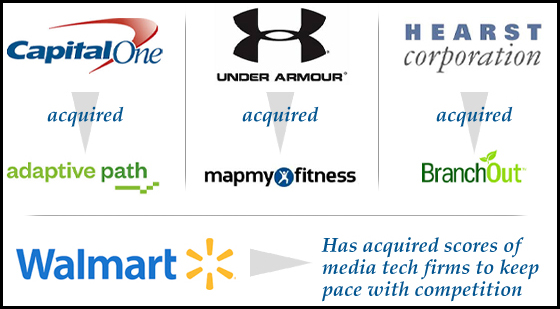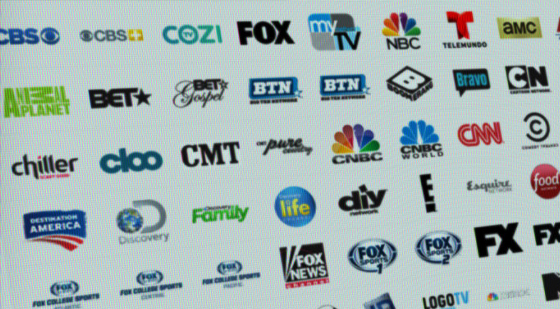
Need The Talent? Buy The Company!
As heads swirl over the growing number of media acquisitions in 2015, last year’s predictions for these trends have proven true and then some. Although federal regulators rejected Comcast’s recent bid to acquire Time-Warner, now Charter wants Time-Warner, — and will likely get it.
I’ve found VentureBeat’s acquisition page with clearly marked abstracts topped with headline links pretty well sums up a media buying trend that has not happened since the last months of the Clinton administration. We all hope innovation drives this trend, and not “buy this week and sell the next” approach among those who stand to make solid dough, especially paper dough.
Not Just Tech Is Buying Up Tech
Not only have tech companies come after boutique media companies in droves not seen since 2000, traditional companies are continuing to beef up media talent they don’t have internally, and simply buying companies that do have the talent. Call this latter trend of “tiny tech acquisition” ongoing preparation for The Internet of Things.
According to Jacob Mullins of Exitround, today we continually have big, strong companies clamoring for relatively small buys (under $100 million):
Do You Take Your Yogurt With New Media?
“UnderArmour acquired MapMyFitness. Hearst acquired BranchOut. Capital One acquired Adaptive Path. Walmart acquired over 15 tech companies in the past four years. There are more corporate buyers in the market than ever, and as detailed by The Economist, “25 of the 30 firms that comprise the Dow Jones Industrial Average” which include everything from The Coca Cola Co. to Caterpiller Inc. have a corporate-venture unit. Even Chobani, the Greek yogurt company, has a tech incubator. These are all attempts to assimilate technology into the businesses of large companies whose core business or focus is not technology.”
But we still have large tech and media companies going hard after smaller tech companies, again according to Mullins of Exitround:
“This year we’ve seen an inordinate number of billion dollar venture-backed exits such as Nest (acquired for $3.2B by Google), Beats (acquired for $3B by Apple), Minecraft (acquired for $2.5B by Microsoft), Oculus VR (acquired for $2B by Facebook), Twitch (acquired for $970M by Amazon) and of course the largest venture-backed exit of all time with Facebook’s $19B acquisition of WhatsApp.”
Four Additional Top Headlines During This Age Of Tech Media Acquisitions & Mergers
“Amazon Trumps Apple’s Beats Acquisition With Music Streaming”
“Three Strong Reasons Why Regulators Will Let Charter Buy Time Warner Cable”
“2015 Will Be The Year Of The Tiny Tech Acquisition”
“AT&T still throttles unlimited data, and FCC isn’t promising to stop it”
Greg Goaley, President of WinCommunications in Des Moines, Iowa, is a former copywriter and creative editor, and a 25-year digital content strategist and provider. Kathryn Towner is President of WinM@il USA, a former 15-year sales rep for Random House/McGraw-Hill, and a 20-year permission-based email publications consultant and provider.

